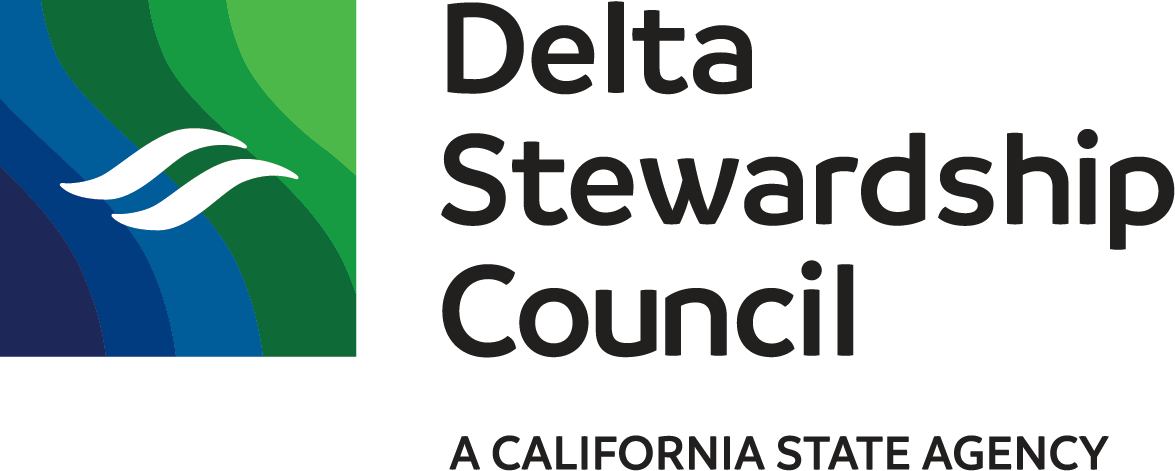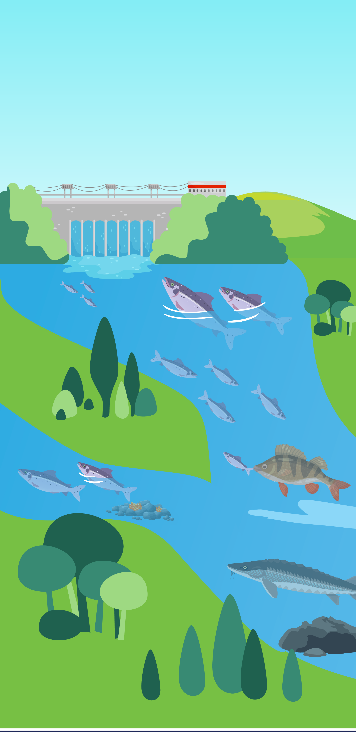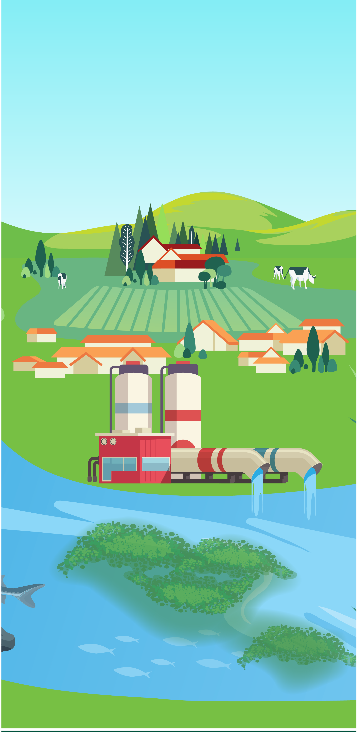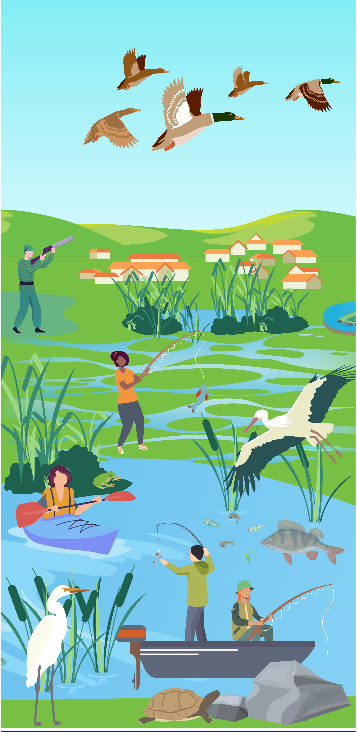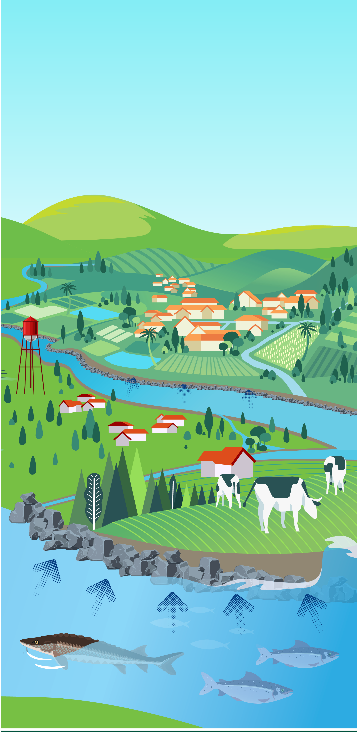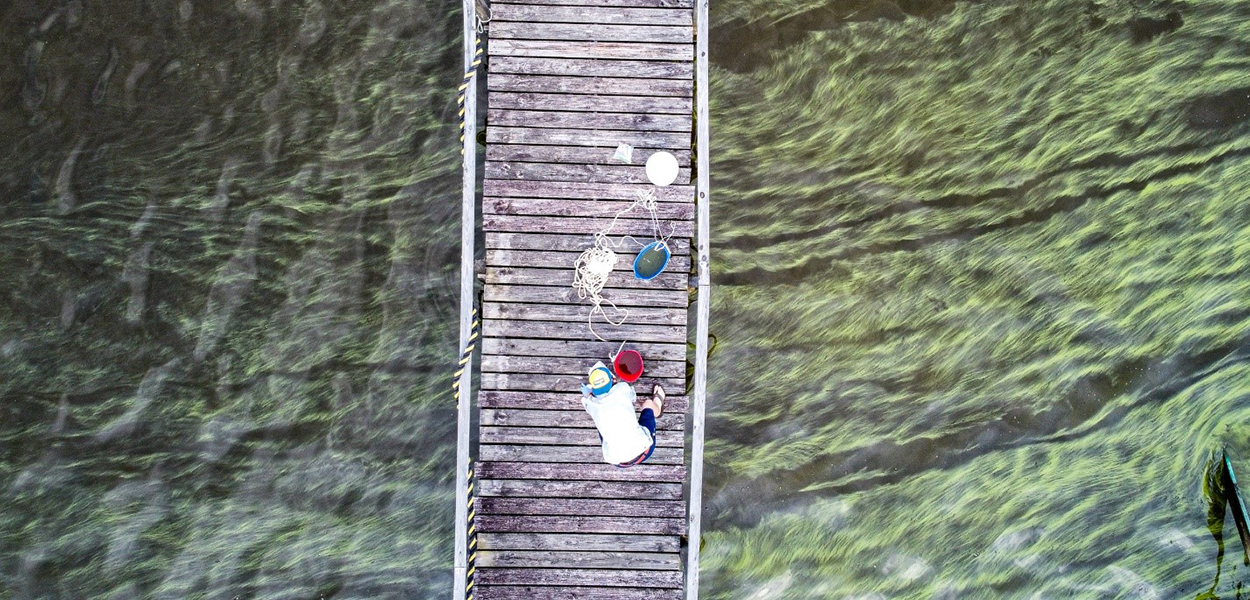
New and Transformative Delta Research Funded by State and Federal Agencies
July 14, 2021
By Henry DeBey, Dr. Emily Ryznar, Dylan Stern, Dr. Louise Conrad, and Dr. Laurel Larsen
After reviewing a record number of proposals submitted in response to the 2021 Delta Science Proposal Solicitation, the Delta Science Program is thrilled to announce that 16 proposals have been selected for funding to address critical biophysical and social science knowledge gaps in the Delta. The Delta Stewardship Council, the U.S. Bureau of Reclamation (Reclamation), and the State Water Contractors have contributed a combined $10 million to fund these innovative projects that will advance our knowledge and management on a diversity of topics.
A Call for High-Priority Science
The solicitation sought high-quality scientific research and synthesis proposals that can advance the 2017-2021 Science Action Agenda (SAA) and transform our state of knowledge. All projects will address one or more action areas in the SAA, which is the result of a multi-year, multi-agency effort to collectively prioritize Delta science and management needs. The SAA is the cornerstone of the shared One Delta, One Science vision of a collaborative Delta science community and a common body of scientific knowledge. The Delta Science Program is currently developing the 2022–2026 Science Action Agenda, through input and extensive collaboration with State and federal agencies and a host of Delta stakeholders.
A brand-new Integrated Socio-Ecological Systems (ISES) proposal category was created in response to recommendations from the Social Science Task Force and with inspiration from the National Science Foundation’s Dynamics of Integrated Socio-Environmental Systems program. Applicants could request funds for research that fully integrates biophysical and social science (ISES) or for smaller budget research awards, which could focus on social or biophysical sciences. A total of $63.9 million in funding was requested across 99 submitted proposals: 21 were ISES proposals, and 78 were research proposals. The Delta Science Program partnered the California Sea Grant Program to conduct a rigorous review process that included multiple stages of review by nationally and internationally recognized subject matter experts, including leading scientists in the Delta. Just 16 % of proposals made it to the top and were recommended for funding.
Scientific Research Achieving Broader Impacts
This proposal solicitation included a tool created by the Council as part of the Delta Adapts initiative to help applicants identify how their project might benefit areas in the Delta with populations that are vulnerable to climate change impacts.
Projects were also required to demonstrate beneficial “broader impacts,” including providing opportunities for education and training to underserved communities, engaging with relevant Delta communities, addressing social vulnerability, or including science education for K-12 classrooms. Proposals were evaluated, in part, on the strength of these broader impacts. The solicitation also encouraged a collaborative approach to knowledge development and strong community engagement, which is more likely to result in science that will be useful for decision-makers.
New Science to Transform our Understanding of the Delta
The 16 selected projects represent a diversity of research areas that will help to advance our knowledge and management of migratory fish, harmful algal blooms, multi-benefit wetland habitat, Delta food webs, sea level rise, and subsidence (see conceptual figure below). Successful research teams encompass a range of disciplines, backgrounds, geographic areas, and career stages.
Migratory
Fish
Migratory fish, including Chinook salmon and sturgeon, are economically, environmentally, and culturally important in the Bay-Delta. Chinook salmon are protected under state and federal law. But key information essential to managing these fish populations remains limited. New research will help to elucidate fish migration, survival, habitat use, resilience to climate change, and improve monitoring and coordinated management.
Harmful Algal Blooms (HABs)
Harmful Algal Blooms and the toxins they may produce are thought to be promoted by different forms of point and non-point source pollution, among other factors. HABs are poorly understood in the Delta and pose a threat to people and the environment. New research will improve our understanding of the causes and effects of HABs and will help to develop solutions to managing and mitigating them.
Multi-Benefit Wetland Habitat & Delta Food Webs
Wetlands throughout the Bay-Delta are known to provide a multitude of benefits, ranging from recreation to supporting native species and climate resilience. New research and tools will improve our ability to evaluate the success of wetland restoration, determine the role of restoration in bolstering aquatic food webs, and develop strategies for managing invasive species.
Sea Level Rise
& Subsidence
Sea Level Rise coupled with land subsidence poses a growing existential threat to the Delta. New research will help to quantify tidal, flood, and sea level trends, identify “hotspots” of habitat and flood risk sensitivity, and assess the ability of wetlands to sequester carbon and provide climate benefits.
To learn more about the Delta science proposal solicitation and see the details of selected projects, visit the Delta Science Proposal Solicitation web page.
Growing a Science Funding Program
The previous Delta science proposal solicitation in 2019 was a joint effort between the Delta Science Program, Reclamation, and the California Department of Fish and Wildlife (CDFW). It resulted in 26 high-priority research awards for a total of approximately $16.9 million.
In parallel with the 2021 Delta science solicitation, the 2021 CDFW Proposition 1 Watershed Restoration Grant & Delta Water Quality and Ecosystem Restoration Grant Program Proposal Solicitation program proceeded separately but in coordination with the Delta Science Program solicitation. For Delta Scientific Studies that are responsive to the 2017-2021 SAA, CDFW awarded $6.4M for 10 new studies. In sum $16 million in funding across all agencies will support new Delta science, which is an amount similar to the 2019 awards.
Research supported by the 2019 solicitation, along with other previous solicitations, has provided new knowledge, tools, and perspectives that are critical for advancing our understanding and management of important species, ecosystems, processes, and human dimensions in the Delta. For example, Dr. Russ Perry of the U.S. Geological Survey was awarded funding from the 2010 Delta Science solicitation to develop new statistical models that have improved our understanding of the factors that affect juvenile salmon migration routes and survival. Dr. Perry’s work was used in the California WaterFix Biological Assessment to inform the analysis of the effects of proposed water management changes on salmonid migration and survival.
The value of this research underscores the need to prioritize long-term, reliable funding to facilitate innovative science and effectively inform management in the Delta. The Delta Science Program intends to continue to offer large, multi-agency Delta science solicitations on a biennial basis. As we confront native species declines and an uncertain future impacted by climate change, we must support forward-looking, high-caliber Delta research and researchers to ensure that management and policy decisions are based on the best possible science.
Learn more about Delta science funding in the inaugural issue of our Delta Breeze Newsletter.
About the Authors
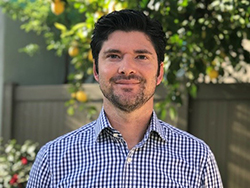
Henry DeBey (He/Him/His)
Environmental Program Manager, Collaborative Science and Peer Review Unit
Henry DeBey is an environmental program manager at the Delta Stewardship Council, where he works to foster and fund collaborative science and peer review in the Delta. Previously, he was a fishery officer at the United Nations Food and Agriculture Organization, where he managed sustainable development projects in coastal communities ranging from Tunisia to Bangladesh. He holds a Bachelor of Arts in geography, environmental studies, and design from the University of California, Los Angeles and a Master of Environmental Science from Yale University. He loves to ride bikes, play soccer, and paint.

Dr. Emily Ryznar (She/Her/Hers)
2021 California State Sea Grant Fellow, Collaborative Science and Peer Review Unit
Emily Ryznar is a 2021 California State Sea Grant Fellow at the Delta Stewardship Council, where she works to support collaborative science efforts, science funding, and the promotion of social science in the Delta. Previously, she worked for the California Department of Fish and Wildlife on abalone and groundfish management projects and assisted in research at a remote field station in Chilean Patagonia. She holds a Bachelor of Science in marine biology from the University of California, Santa Cruz and a Doctorate in biology from the University of California, Los Angeles, where she studied the causes and consequences of species invasions. Emily is an avid outdoorswoman who also enjoys art and delicious baked goods.
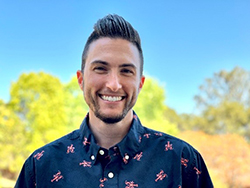
Dylan Stern (He/Him/His)
Program Manager I for Science Funding Processes
Dylan Stern has worked at the Delta Science Program, part of the Delta Stewardship Council, since 2015. A proud civil service scientist, he is particularly interested in the intersection of water quality, ecology, and water supply in the complex Delta. He was previously an environmental scientist at Tetra Tech and a staff scientist at Bachand & Associates. He received a Master of Science in environmental science and management from the University of California, Santa Barbara and a Bachelor of Science in environmental science from California State University, Chico. When he isn’t working, Dylan enjoys drawing, baking, and spending time with his daughter.
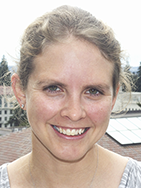
Dr. Laurel Larsen (She/Her/Hers)
Delta Lead Scientist
In addition to her work with the Council, Laurel, an interdisciplinary ecohydrologist, is an associate professor in geography and civil and environmental engineering at the University of California, Berkeley. Before starting her role at Berkeley in 2013, she was a research hydrologist and ecologist at the United States Geological Survey in Reston, Virginia. She holds a Doctorate in civil engineering (water resources) from the University of Colorado, Boulder and both a Master of Science in earth and planetary sciences and a Bachelor of Science in systems science and mathematics and environmental studies from Washington University in St. Louis. In her free time, she enjoys outdoor adventuring, gardening, and chasing around her son and dog.
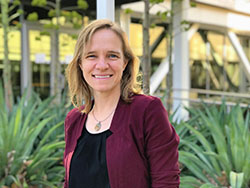
Dr. Louise Conrad (She/Her/Hers)
Deputy Executive Officer for Science
Louise works with the Delta lead scientist to oversee the ambitious mission of the Delta Science Program. Before serving at the Delta Stewardship Council, she was a program manager for estuarine science and synthesis at the Department of Water Resources. She worked with scientists of the Interagency Ecological Program to advance the synthesis of long-term ecological datasets of the San Francisco Estuary. She began working in the Delta as a Post-Doctoral Scholar at the University of California, Davis, where she studied the interaction between invasive aquatic plants and largemouth bass. Before diving into Delta science, she served as a fisheries biologist for the Pacific States Marine Fisheries Commission in California’s Russian River watershed, where she helped manage a captive broodstock and reintroduction program for endangered coho salmon. She received her Doctorate in animal behavior from the University of California, Davis in 2008, where she studied the influence of the domestication of juvenile salmon in production hatcheries on individual growth and behavior.

